nutrition and wound healing pdf
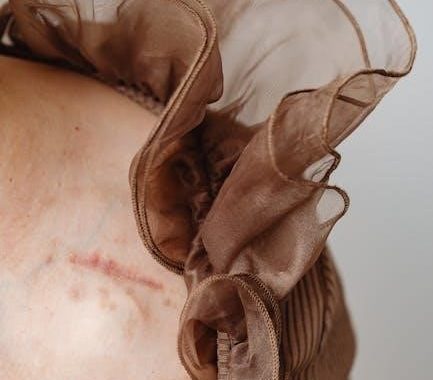
nutrition and wound healing pdf
Nutrition plays a cornerstone role in wound healing‚ supported by extensive research․ The global wound healing nutrition market is growing‚ driven by advancements in clinical nutrition and demand for effective solutions․ Healthcare providers emphasize the importance of proper dietary intake to enhance the body’s natural healing processes‚ making nutrition a critical factor in successful wound care․
1․1 Importance of Nutrition in Wound Care
Nutrition is fundamental to effective wound care‚ as it directly impacts the body’s ability to heal․ Adequate dietary intake ensures the availability of essential nutrients required for tissue repair‚ immune function‚ and overall recovery․ Proper nutrition accelerates wound healing by providing the necessary building blocks for collagen synthesis‚ cell proliferation‚ and the prevention of infection․ Without sufficient nutrients‚ the healing process can be delayed‚ leading to prolonged recovery times and increased susceptibility to complications․
Key macronutrients‚ such as proteins‚ carbohydrates‚ and fats‚ are vital for energy production and tissue repair․ Proteins‚ in particular‚ are crucial for synthesizing enzymes‚ hormones‚ and structural components of new tissue․ Micronutrients‚ including vitamins A and C‚ zinc‚ and omega-3 fatty acids‚ play essential roles in immune function‚ collagen formation‚ and oxidative defense․ Hydration is equally important‚ as water supports cellular processes and maintains skin integrity․
Poor nutrition can significantly impede wound healing‚ resulting in slower recovery‚ weaker tissue repair‚ and increased risk of infection․ Malnutrition is often associated with delayed healing‚ particularly in vulnerable populations such as the elderly‚ individuals with chronic conditions‚ and those with limited access to balanced diets․ Conversely‚ optimization of nutritional status can enhance healing outcomes‚ reduce the risk of complications‚ and improve quality of life․
In clinical practice‚ nutritional assessment and support are integral to wound care protocols․ Healthcare providers emphasize the importance of personalized dietary plans tailored to the patient’s specific needs‚ ensuring adequate caloric intake and nutrient balance․ By addressing nutritional deficiencies and promoting a balanced diet‚ healthcare professionals can significantly improve wound healing outcomes and overall patient health․
1․2 Historical Perspective on Nutrition’s Role in Healing
The relationship between nutrition and wound healing has been recognized for centuries‚ with historical practices reflecting an intuitive understanding of its importance․ Ancient civilizations employed various dietary strategies to promote recovery‚ often relying on natural remedies and observational knowledge․ For instance‚ honey and plant extracts were used to aid wound repair due to their antimicrobial and soothing properties․ These early practices laid the groundwork for modern nutritional approaches․
In ancient Greece and Rome‚ physicians like Hippocrates and Galen emphasized the role of diet in health and recovery․ They recommended nutrient-rich foods‚ such as meat broths and fresh fruits‚ to support healing․ Similarly‚ traditional Chinese medicine incorporated specific dietary regimens to balance “qi” and restore tissue health․ These historical practices highlight the enduring belief in nutrition’s healing potential․
During the Middle Ages‚ monasteries and herbalists played a significant role in preserving knowledge about nutritional remedies․ Wound treatments often included poultices made from nutrient-rich substances like onions and garlic‚ which were valued for their antibacterial properties․ Although the scientific rationale behind these practices was not fully understood at the time‚ they demonstrated a practical understanding of how diet could influence recovery․
The 20th century marked a turning point‚ as scientific research began to elucidate the biochemical mechanisms underlying nutrition’s role in wound healing․ Studies identified key nutrients like protein‚ vitamin C‚ and zinc as critical for tissue repair and immune function․ This scientific validation of historical practices solidified the importance of nutrition in modern wound care․
Throughout history‚ the connection between nutrition and healing has evolved from empirical observations to evidence-based practices․ Early approaches‚ though rudimentary‚ underscored the timeless importance of proper dietary habits in restoring health․ Today‚ this historical foundation continues to inform cutting-edge research and clinical guidelines in wound care․
1․3 Current Research Trends in Nutrition and Wound Healing
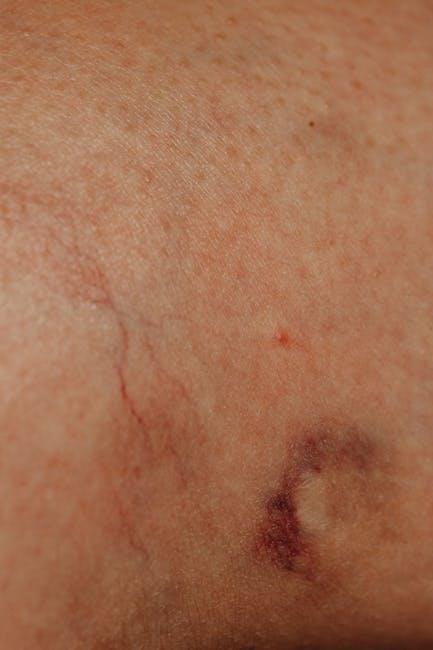
Current research in nutrition and wound healing is rapidly advancing‚ driven by the need for effective solutions to enhance recovery and improve patient outcomes․ A key focus of contemporary studies is the identification of specific nutrients and dietary interventions that can accelerate healing processes․ For instance‚ there is growing interest in the role of omega-3 fatty acids‚ antioxidants‚ and beta-glucans‚ which have shown promise in reducing inflammation and promoting tissue repair․ Additionally‚ the impact of caloric and protein intake on wound healing is being extensively studied‚ with recommendations now emphasizing higher protein consumption to support tissue regeneration․
Another emerging trend is the exploration of personalized nutrition plans tailored to individual patient needs․ Factors such as age‚ lifestyle‚ and pre-existing conditions are being considered to optimize dietary recommendations․ This approach aims to address the unique nutritional deficiencies that may impede healing in specific populations‚ such as the elderly or those with chronic conditions․ Furthermore‚ advancements in nutritional genomics are opening new avenues for understanding how genetic variations influence an individual’s response to different nutrients during wound healing․
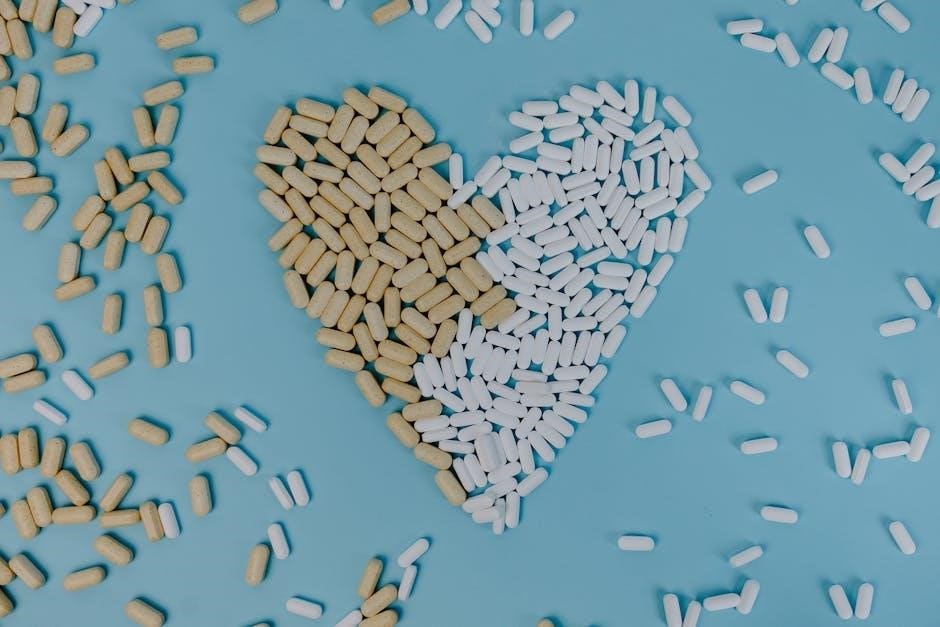
Recent studies have also highlighted the importance of hydration in wound care․ Adequate fluid intake is essential for maintaining skin elasticity and supporting the delivery of nutrients to healing tissues․ Researchers are now investigating the role of electrolyte-rich beverages and other hydration strategies to enhance recovery․ Moreover‚ the development of nutritional supplements‚ such as arginine and zinc-enriched formulas‚ is gaining traction as a means to address deficiencies and promote faster healing․
The integration of nutrition into wound care protocols is another significant trend․ Healthcare providers are increasingly recognizing the importance of nutritional assessments as a routine part of patient care․ This shift is supported by clinical guidelines that emphasize the role of diet in preventing complications and reducing healing times․ As research continues to uncover the complex interplay between nutrition and wound healing‚ these findings are being translated into practical‚ evidence-based recommendations for clinicians and patients alike․
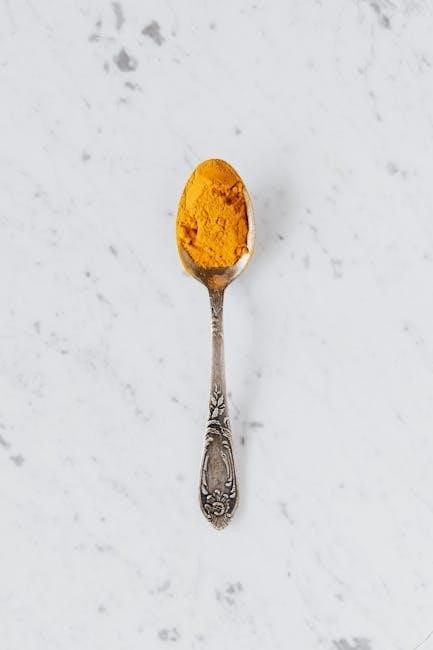
The Role of Nutrition in Wound Healing
Nutrition is fundamental to wound healing‚ providing the necessary building blocks for tissue repair․ Macronutrients like proteins‚ carbohydrates‚ and fats supply energy and support cellular regeneration․ Micronutrients‚ such as vitamins C and A‚ and minerals like zinc‚ are essential for collagen synthesis and immune function․ Proper hydration also plays a critical role in maintaining skin elasticity and facilitating nutrient delivery․ Adequate nutrition not only accelerates healing but also prevents complications‚ making it a cornerstone of effective wound care․
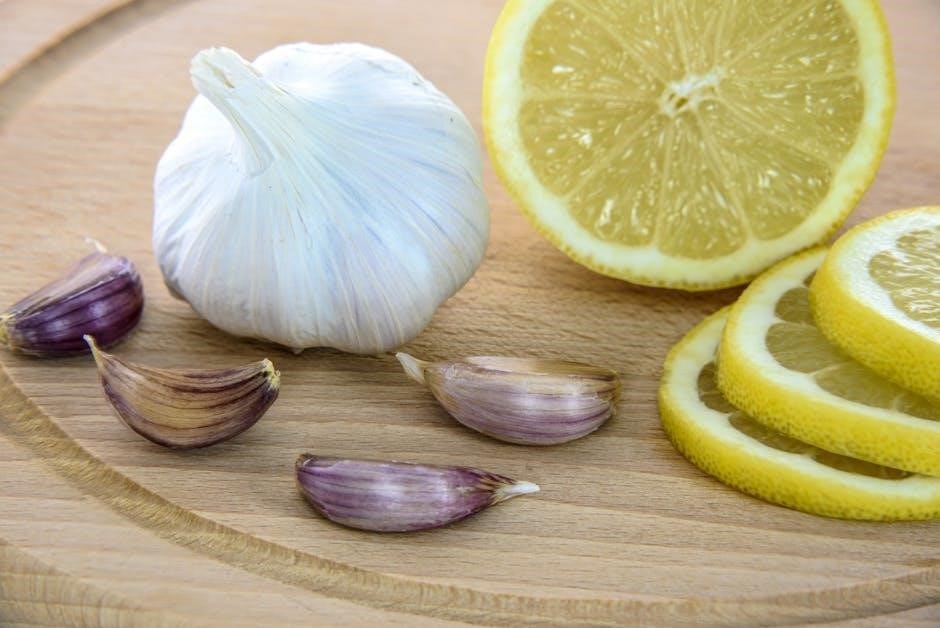
2․1 Macronutrients: Carbohydrates‚ Proteins‚ and Fats
Macronutrients are essential for providing energy and supporting the complex processes involved in wound healing․ Carbohydrates serve as the primary energy source‚ fueling cellular activities and preventing muscle breakdown․ Proteins are critical for tissue repair‚ as they provide amino acids necessary for collagen synthesis and new tissue growth․ Essential amino acids‚ such as arginine and glutamine‚ are particularly vital for immune function and wound repair․
Fats‚ including omega-3 and omega-6 fatty acids‚ play a role in reducing inflammation and promoting healing․ Healthy fats also support the absorption of fat-soluble vitamins‚ such as vitamin A‚ which is crucial for tissue repair․ A balanced intake of these macronutrients ensures the body has the necessary resources to heal efficiently․ Research recommends a daily intake of 30-35 kcal/kg of body weight‚ adjusted based on individual needs and wound progression․ Proper macronutrient balance not only accelerates healing but also strengthens overall health‚ making it a foundational aspect of wound care nutrition․
2․2 Micronutrients: Vitamins and Minerals
Micronutrients‚ including vitamins and minerals‚ are vital for optimal wound healing․ Vitamin C is essential for collagen synthesis‚ strengthening the wound and promoting tissue integrity․ It also enhances immune function‚ reducing the risk of infection․ Vitamin A supports immune response and tissue repair‚ while zinc is critical for enzymatic processes and protein synthesis․ Deficiencies in these micronutrients can significantly impede healing․
Research highlights the importance of adequate zinc intake‚ as it plays a role in DNA synthesis and cell division․ Similarly‚ iron is necessary for oxygen delivery to healing tissues‚ and omega-3 fatty acids help reduce inflammation․ Vitamins such as B and E also contribute to energy production and antioxidant defense‚ protecting cells from oxidative stress during repair․
Studies suggest that nutritional supplements enriched with arginine‚ zinc‚ and antioxidants can enhance wound healing‚ particularly in cases like pressure ulcers․ Ensuring sufficient intake of these micronutrients supports faster recovery and stronger tissue repair․ Clinicians often recommend tailored nutritional plans to address specific deficiencies‚ emphasizing the role of diet in wound care․
2․3 Hydration and Its Impact on Healing
Hydration is a critical yet often overlooked component of wound healing․ Adequate fluid intake ensures proper blood flow‚ delivering oxygen and nutrients to damaged tissues․ Even mild dehydration can impede the healing process‚ slowing tissue repair and increasing the risk of complications․
Water is essential for maintaining skin integrity‚ the first line of defense against infection․ In wounded individuals‚ the body requires additional fluids to support immune function and cellular regeneration․ Without sufficient hydration‚ the skin’s natural barrier function weakens‚ making it more susceptible to breakdown and infection․
Research emphasizes the role of hydration in enzymatic processes and nutrient transport․ Fluids help dissolve and transport vitamins and minerals‚ such as vitamin C and zinc‚ which are vital for collagen synthesis and tissue repair․ Furthermore‚ hydration aids in the removal of waste products‚ preventing the accumulation of toxins that can hinder healing․
Clinical guidelines often recommend increased fluid intake for individuals with wounds‚ particularly in cases of burns or extensive tissue damage․ Healthcare providers may advise consuming fluids rich in electrolytes to maintain proper bodily functions and support the healing process․
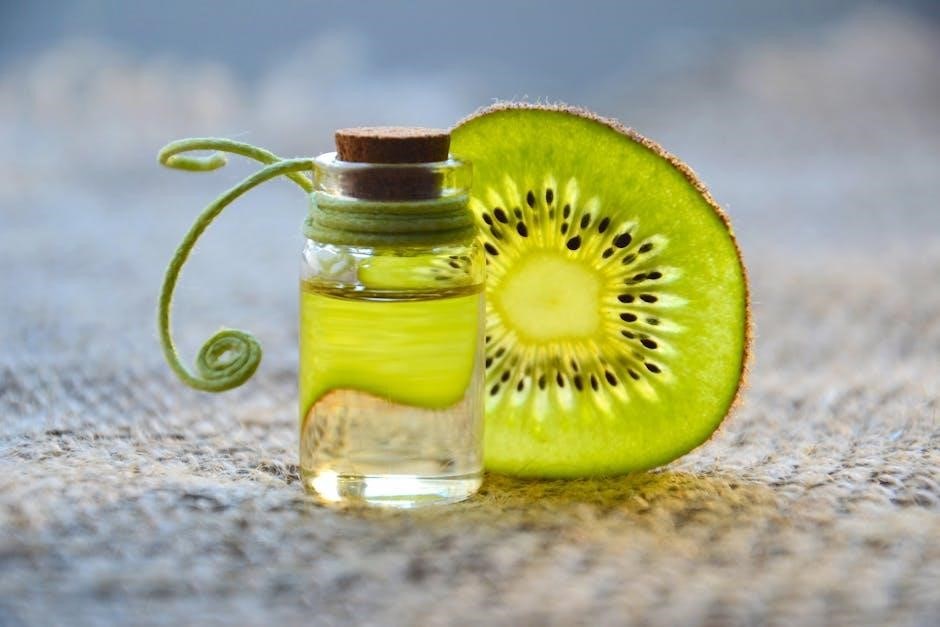
Key Nutrients for Optimal Wound Healing
Proper nutrition is vital for wound healing‚ with specific nutrients playing pivotal roles․ Protein‚ vitamin C‚ and zinc are essential for tissue repair and collagen synthesis․ Vitamin A supports immune function‚ while omega-3 fatty acids reduce inflammation․ Adequate hydration and a balanced diet ensure these nutrients are effectively utilized‚ promoting faster recovery and stronger tissue regeneration․
3․1 Protein: The Building Block of Tissue Repair
Protein is indispensable in wound healing‚ serving as the foundation for tissue repair․ It provides essential amino acids like arginine and glutamine‚ which are critical for cellular regeneration and collagen synthesis․ Studies highlight that inadequate protein intake can delay healing‚ while sufficient consumption accelerates recovery․ Foods rich in high-quality protein‚ such as lean meats‚ fish‚ and legumes‚ are recommended to support optimal wound healing outcomes․
3․2 Vitamin C: Essential for Collagen Synthesis
Vitamin C is a cornerstone nutrient for wound healing‚ primarily due to its role in collagen synthesis․ Collagen‚ a key structural protein‚ is vital for forming new tissue and restoring skin integrity․ Vitamin C acts as a cofactor for the enzymes prolylhydroxylase and lysylhydroxylase‚ which stabilize and cross-link collagen molecules‚ ensuring the formation of a strong extracellular matrix․ Without sufficient Vitamin C‚ collagen production is impaired‚ leading to weaker wound closure and prolonged healing times․
Deficiencies in Vitamin C can significantly hinder the healing process‚ resulting in impaired tissue repair and increased susceptibility to infection․ Foods rich in Vitamin C‚ such as citrus fruits‚ strawberries‚ bell peppers‚ and broccoli‚ are essential for maintaining adequate levels․ Additionally‚ Vitamin C supports immune function‚ which is critical for preventing infections in open wounds․ It also acts as an antioxidant‚ protecting cells from oxidative stress and promoting a conducive environment for healing․
Research emphasizes the importance of Vitamin C in both the inflammatory and proliferative phases of wound healing․ During the inflammatory phase‚ it helps stabilize the wound environment‚ while in the proliferative phase‚ it facilitates the synthesis of granulation tissue and epithelialization․ Supplementation with Vitamin C‚ particularly in cases of deficiency or severe wounds‚ has been shown to enhance healing outcomes and reduce complications․

3․3 Vitamin A: Supporting Immune Function and Tissue Repair
Vitamin A is a critical nutrient for wound healing‚ playing a pivotal role in immune function and tissue repair․ It is essential for maintaining the integrity of epithelial cells‚ which form a protective barrier against infections․ Vitamin A also supports the immune system by enhancing the function of white blood cells‚ which are vital for fighting pathogens that may infect open wounds․
During the wound healing process‚ Vitamin A promotes epithelialization‚ the process by which new skin cells grow to cover the wound․ It also aids in the production of growth factors that stimulate the proliferation and differentiation of cells necessary for tissue repair․ Additionally‚ Vitamin A exhibits anti-inflammatory properties‚ which help reduce excessive inflammation that could impede the healing process․
Deficiencies in Vitamin A can lead to impaired wound healing‚ increased susceptibility to infections‚ and delayed tissue repair․ Foods rich in Vitamin A‚ such as sweet potatoes‚ carrots‚ liver‚ and leafy greens‚ are excellent sources for meeting dietary needs․ Supplementation may be recommended in cases of severe deficiency or complex wounds․
3․4 Zinc: A Critical Mineral for Healing
Zinc is a fundamental mineral that plays a significant role in the wound healing process․ It is essential for maintaining immune function‚ reducing inflammation‚ and promoting tissue repair․ Zinc acts as a cofactor for numerous enzymes involved in cellular proliferation and regeneration‚ making it indispensable for the healing of wounds․
During wound healing‚ Zinc supports the activation of immune cells‚ such as macrophages and T-lymphocytes‚ which are crucial for battling infections and initiating the repair process․ It also plays a key role in the proliferation and differentiation of fibroblasts and keratinocytes‚ which are vital for collagen synthesis and epithelialization․ Additionally‚ Zinc exhibits antioxidant properties‚ helping to neutralize free radicals that can impede healing․
Adequate Zinc levels are necessary for the proper functioning of enzymes that regulate tissue repair․ Deficiencies in Zinc can lead to delayed wound healing‚ impaired immune response‚ and increased susceptibility to infections․ Studies have shown that Zinc supplementation can enhance wound healing outcomes‚ particularly in cases of burns‚ ulcers‚ and surgical wounds․
Foods rich in Zinc‚ such as oysters‚ beef‚ chicken‚ fortified cereals‚ and pumpkin seeds‚ are excellent sources for meeting dietary needs․ Supplementation may be recommended for individuals with severe deficiencies or those with chronic wounds․ In summary‚ Zinc is a critical mineral that supports immune function‚ reduces inflammation‚ and promotes tissue repair‚ making it essential for optimal wound healing․